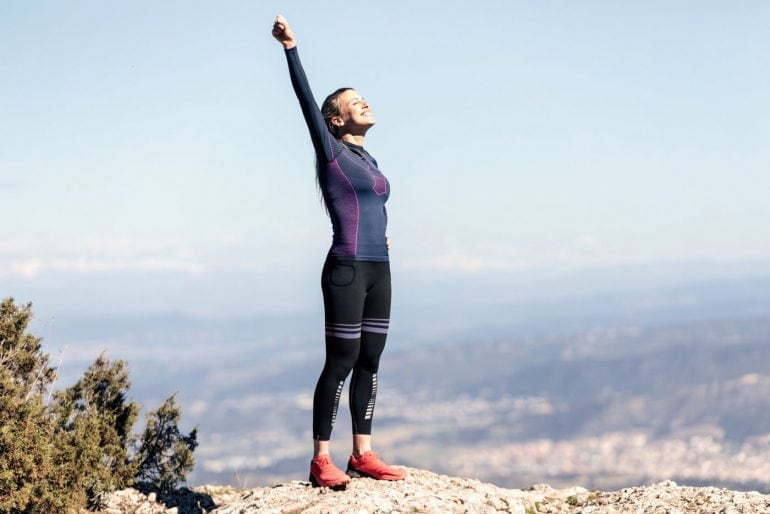We spend a lot of time and effort developing our skills and abilities — whether it’s for our careers, a musical passion or even a favorite sport — but there’s one key element that can hold us back despite all of our efforts: our confidence.
It’s key to reaching your full potential
Health psychologist Shilagh Mirgain, PhD, says that a lack of confidence can actually prevent us from reaching our full potential.
“While many don’t realize it, it’s incredibly common to feel like we’re not good enough or somehow worthy of success,” she says. “Psychologists call this the ‘impostor syndrome.'”
We spend a lot of our energy and financial resources trying to improve ourselves so we can be good enough — from the way we look to our intelligence- – but it frequently feels like that goal is just out of reach, leaving us vulnerable to depression, anxiety and increased stress from negative self-talk.
According to Mirgain, many individuals tend to play it safe and seek out things that come easily. We don’t push our limits or abilities and consequently can give up on our dreams before they are even given time to bloom. But there are ways to build confidence through regular practices of simple skills.
Use your voice
Speak up. Whether in classes, meetings, with friends or even family, look for ways to make your voice heard and consider how you are talking. It is common for women to “up-talk” – ending every sentence as though it were a question.
Mirgain points out that speech patterns like up-talk can lead to women being perceived as less competent, less educated, less trustworthy and even less employable.
She also encourages individuals to take credit for their ideas and value their contributions. Even if you make a mistake or are wrong, don’t give up. Keep working to make your voice heard.
Do your best and forget the rest
There is an old proverb: “Fall down seven times, stand up eight.” We will always make mistakes — the difference is how we respond when they happen. We can learn to more quickly recover from set-backs, missteps and even failures through encouraging and supporting ourselves, remembering to view the current difficulty from a larger perspective and continuing to take action in the direction of our goals.
There will always be someone smarter, faster, richer, more creative — more everything. And when we start to compare it becomes easy to get stuck in a negative loop — we internalize negative set-backs and see that as a reflection of our inability to be successful. Instead, Mirgain suggests interrupting the loop through positive self-talk and by focusing on what we’ve learned from the situation.
“Use your energy to change what you can control,” she says. “Focus your mind on working towards the solution and what you are learning in the process versus dwelling on the problem. Confidence is often built through the struggle of stretching yourself, trying for something that can feel a bit scary or daunting.”
And remember that many individuals feel the same way, so while you’re comparing yourself to others, someone may be comparing themselves to you.
Work toward a larger purpose
For some, it can help to think of working for a larger purpose whether that is your family, your community or your company. It can be easy to feel like we’re in competition with others, but really we’re working to the benefit of others. Our ideas can help make a positive difference and our courage can be strengthened when the actions we take contribute to the overall well-being of others.
Create presence by power posing
Just as our vocal habits can influence how others see us, so too does our body language. And it can affect how we see ourselves.
Even if you’re not feeling confident entering a situation — like a meeting or presentation — you can help boost your confidence through the superhero pose. Standing in the pose will change your physical posture, which can help change your mental and emotional state.
Superhero pose
- Stand tall, feet hip-width apart.
- Shoulders relaxed
- Hands on your hips
- Take 5-10 deep breaths in this stance.
“If you need to, step into a bathroom stall at work or behind a closed office door and try to pose. You may feel silly at first, but there is science behind the idea,” says Mirgain, pointing to research that suggests we can change our body chemistry by changing positions.
A ‘high power pose’ like the superhero pose can increase testosterone levels and decrease cortisol levels. When individuals have low cortisol levels, they are better able to handle stressful situations. Spending just two minutes in a high power pose can make a significant difference.
Learning to take risks is hard, but with practice and time, we really can live the life we dreamed of.









